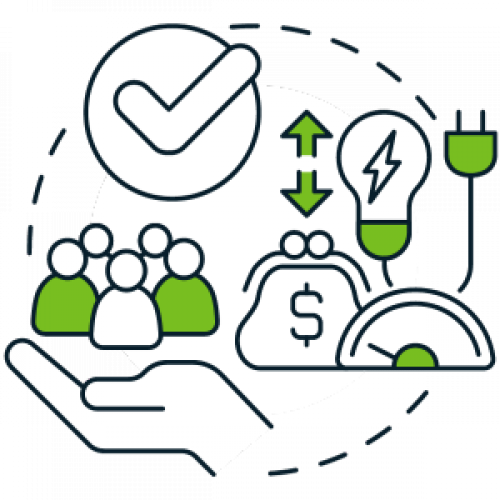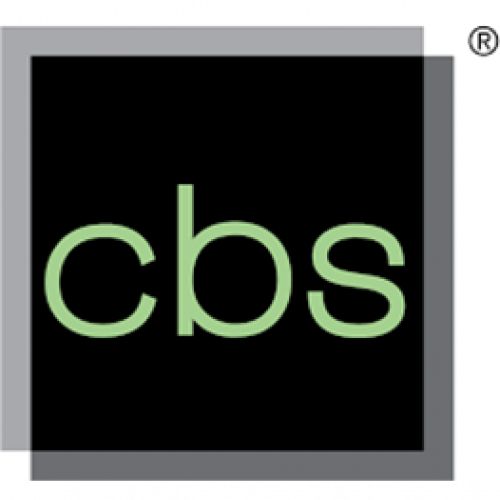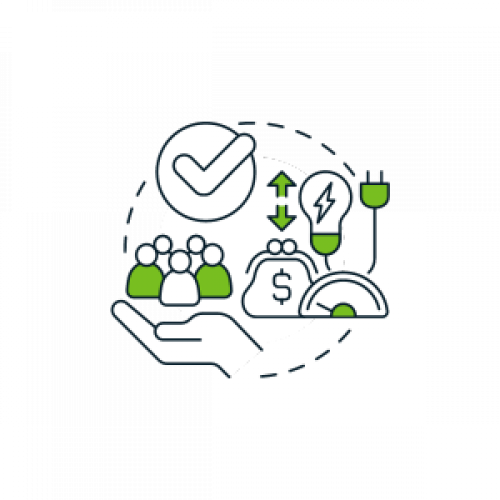Financial Literacy
Financial literacy and the need for financial education: evidence and implications
Unlock the keys to financial stability and security with the necessary skill set.
If you educate yourself on the fundamentals of money management early, then you will be more confident and successful in controlling your finances later. While it's never too late to begin learning about finances, those who start earlier have an advantage. The path to financial prosperity begins with education!
Money management is the foundation upon which most of our financial decisions rest, including banking, budgeting, saving, credit-building, debt repayment, and investing.
Now is the perfect time to get started with this valuable guide, and what better topic to begin with than financial literacy? Let's explore how understanding financial skills can enhance your life.
KEY TAKEAWAYS
- Financial literacy is the ability to comprehend and leverage a range of economic knowledge and skills.
- Those with a better understanding of the fundamentals of finances are more likely to make responsible financial choices, such as reducing spending and saving for retirement, than those who lack that knowledge. Furthermore, they are also far more likely to have an emergency fund in place should unforeseen circumstances arise.
- To become financially literate, the fundamentals must be mastered—banking and budgeting methods, debt/credit management techniques, and investing strategies. When combined with everyday life applications you can begin to experience financial freedom.
What Is Financial Literacy?
Financial literacy is the ability to comprehend and leverage a range of economic knowledge and skills. It involves understanding financial terminology, budgeting your income, debt repayment strategies, and more complex topics such as investments and retirement planning. Financial literacy helps you make responsible decisions when it comes to money that can lead to long-term financial stability.
There are numerous benefits of having a basic knowledge of personal finance. Those with a better understanding of the fundamentals of finances are more likely to make responsible financial choices, such as reducing spending and saving for retirement, than those who lack that knowledge. Furthermore, they are also far more likely to have an emergency fund in place should unforeseen circumstances arise.
High levels of financial literacy can pay off in other ways as well it may lead to better job opportunities, higher wages, and investing success.
To become financially literate, the fundamentals must be mastered—banking and budgeting methods, debt/credit management techniques, and investing strategies. When combined with everyday life applications you can begin to experience financial freedom.
The Importance of Financial Literacy
According to the Financial Industry Regulatory Authority (FINRA)’s National Financial Capability Study, Americans who possess a more comprehensive understanding of financial literacy are likely to be able to make ends meet, save more of their income, have an emergency fund for three months ahead and open a retirement account - all this in comparison with those that don't comprehend as much about finances.
Retiring comfortably is more vital than ever, and pension plans are used to provide the financial security that many individuals needed in their twilight years. Yet traditionally it was employers or governments who had to shoulder the burden of managing those funds. Nowadays, however, retirement planning falls firmly on our own shoulders - so making informed decisions about your finances is paramount!
In today's workplace, the traditional pension has become a rarity. Most employers now offer their workers the choice to participate in 401(k) plans and make decisions regarding contribution levels and investment selections independently. Those that lack employer-sponsored options have to take it upon themselves to open individual retirement accounts (IRAs) and other tax-advantaged retirement accounts in order to gain access to these benefits. Understanding personal finance basics is vital for making informed choices when planning for your future!
With life spans progressively extending (resulting in extended retirements) and Social Security benefits that don't even cover the basics, it's no surprise people are overwhelmed by complicated health insurance options along with a broad range of investment instruments to pick from—such as banks, credit unions, brokerage firms, and credit card companies.
In order to make informed decisions, evade exorbitant debt, help our family members navigate these intricate choices, and secure a comfortable retirement income - financial literacy is indispensable.
Personal Finance Basics
Knowing the ins and outs of personal finance is a crucial part of becoming financially literate. The decisions you make surrounding your finances will have long-term implications, so it's important to understand what strategies are available for reaching your financial goals - whether they include buying a home, helping family members in need, investing in education or retirement savings plans, contributing to charitable causes that matter most to you, or something else entirely. Your money management skills can help determine the success of these aspirations!
If you're looking to be money-savvy, then look no further than the fundamentals of personal finance. This includes banking, budgeting, debt and credit management as well as investment strategies. Let's explore these topics together so that you can get your finances in order!
Introduction to Bank Accounts
Opening a bank account is usually the initial step toward building a stable financial future. With the ability to hold and grow your money, bank accounts provide a solid foundation for saving up for significant purchases and life events. Below is some useful information about bank accounts and why they are considered a crucial starting point for your financial journey.
Why do I need a Bank Account?
Do you have a bank account? Most Americans do, but it’s important to remember that 6% of households in the United States are still without one. Why bother getting an account?
For starters, holding your cash in a bank is much safer than carrying around large sums of money yourself - where assets held within banks are harder for would-be thieves to access. Furthermore, deposits placed into most U.S. accounts are generally insured by the Federal Deposit Insurance Corporation (FDIC), meaning customers can rest easy knowing their funds will always be accessible - whether they decide to remove them all at once or not!
To complete numerous financial transactions, you will need a bank account in order:
- To use a debit or credit card
- To use payment apps like Venmo or PayPal
- To write a check
- To use an ATM
- To buy or rent a home
- To receive a paycheck from your employer
- To earn interest on your money
Online vs. Brick-and-Mortar Banks
Whenever you think of a bank, the first thing that probably comes to mind is an actual brick-and-mortar building. However, many of these banks offer their services online as well.
Additionally, there are digital banks that only conduct business on the web and provide all the same services as traditional institutions – minus any physical visits.
Which Type of Bank Can I Use?
Retail Banks - Popular among the public, retail banks provide a variety of financial services such as checking and savings accounts, credit cards, loans, and insurance. It's easy to access these facilities through physical branches or online portals that are often equipped with modern technologies; Not only do they offer customers more locations and ATMs nationwide than credit unions but also give them the freedom to choose between digital-only banking or face-to-face interactions when conducting transactions.
Credit Unions - From savings and checking accounts to loans, credit unions such as Pathways provide the same services as banks. The key distinction is that they are owned by their members rather than shareholders. As a result, credit union customers may benefit from lower fees and higher interest rates on savings accounts and loans compared with those offered by banks.
Additionally, many people find that working with a smaller organization provides more personalized customer service than what they might receive at larger financial chains—though it is important to note that this also comes along with fewer branches or ATM locations available for use.
What Types of Bank Accounts Can I Open?
For the average person opening a new bank account, there are three main types they will presumably be interested in:
Savings Accounts: A savings account is an ideal way to store your available cash for short-term needs; it's safe, reliable, and offers a low-interest rate. Banks or other financial institutions are where you can securely deposit your money into this interest-bearing account. With its reliability and assurance of safety, trust in the security of your funds as you save with confidence!
If you're looking to save money while also having flexibility, savings accounts are ideal. These types of accounts usually come with legal restrictions on how often you can withdraw funds; however, they provide the perfect solution for building an emergency fund or saving up for a short-term goal such as purchasing a car or taking that dream vacation. They also offer the option to store additional cash without worrying about it sitting in your checking account unused.
Checking Account: A checking account is a deposit account provided by your bank or financial institution, allowing you to make deposits and withdrawals with ease. These accounts are incredibly liquid - meaning they grant access to numerous withdrawals each month as opposed to other less accessible savings and investment accounts – though unfortunately don't offer much in terms of interest rate yields.
Secure your funds by depositing money into banks or ATMs, utilizing direct deposit services, or using other electronic actions. Withdraw cash from the same sources with ease as well; either through bank withdrawals and ATMs, writing checks, or leveraging debit cards that are linked to your accounts.
Are you looking for a checking account free of extra fees? Many accounts come with monthly and other charges, depending on your balance or whether there is an automatic paycheck deposit or mortgage payment associated with the account. Additionally, overdrafts and out-of-network ATM usage may incur additional costs as well.
If you're having trouble receiving a traditional checking account, Lifeline and second-chance accounts offered by certain banks can provide the aid you need.
High-Yield Savings Accounts: A high-yield savings account offers a far greater rate of interest than any regular savings account and is the ideal choice for those wanting to earn more on their money. The drawback, however, to this type of banking option is that it usually requires bigger initial deposits and higher fees as well as larger minimum balances in order to be able to benefit from its advantages.
What's An Emergency Fund?
An emergency fund doesn't have to be a particular type of bank account; any saved cash will prove beneficial in the event that you need financial assistance due to job losses, medical bills, or car repairs. Here's how they work:
- To be financially prepared for any kind of emergency, it is best practice to keep a separate savings account dedicated solely to such funds.
- This account should accumulate enough funds to pay for three to six months of expenses.
- It is essential to keep your emergency fund money separate and untouchable for regular living costs.
Introduction to Credit Cards
Credit cards are a familiar and common sight, found in almost every wallet. When you open an account with a credit card issuer, it provides the opportunity to borrow money from them over time--just remember that if your balance isn't paid off each month, interest will accumulate on whatever amount remains. Though less frequent than standard credit cards, there exist charge cards that require full payment of the balance at the end of each month instead; however, they are not as commonly used.
What's the Difference Between Credit Cards and Debit Cards
For an in-depth difference:
Debit Card
Debit cards are an ideal way to keep track of your spending as they allow you to use only the money that is currently in your checking account. This means that there is no chance for overspending, unlike with other payment methods. However, it's worth noting that using debit cards won't help you develop a credit history or improve your credit score.
Credit Cards
Credit cards provide you with the convenience of borrowing money without having to dip into your bank account. This can be beneficial when confronted with costly, surprise purchases. However, if you fail to pay off what you have borrowed in full each month, then interest will accumulate and compound on top of that balance; Americans owed a whopping $986 billion by the end of 2020! That's why it is a wise practice to always try and repay any credit card debt as quickly as possible—it'll save you time and money in the long run!
Therefore, practice utmost caution when spending beyond your means; debt has a nasty habit of piling up quickly and becoming extremely hard to pay off.
Conversely, using your credit card wisely and making payments on time will build a strong credit history and an impressive rating. Not only is it necessary to get the best offers from top-tier banks but also to enjoy favorable rates when taking out car loans, personal loans, or mortgages. A good credit score can be of great benefit in all these situations!
What Is APR?
APR, or annual percentage rate, denotes the amount of interest that you'll owe your credit card issuer for any unpaid balance. It's important to pay close attention to this number when applying for a new credit card; if you have bad credit, the higher rates can cost you thousands over time. Currently, most APR hovers around 23%, but it is likely to fluctuate according to different types of cards and credit scores.
Which Credit Card Should I Choose?
Knowing your credit score is pivotal when deciding to apply for a new card. Once you understand what range your score falls into, it's easier to narrow down the options that are available to you. Furthermore, consider which benefits best align with your lifestyle and what type of purchases you make regularly - this will help determine the right card for you!
For those who have never used a credit card or may struggle with bad credit, the best option is to apply for either a secured or subprime credit card. Taking this step and being diligent in paying back on time will help you build your score and gain access to better rates down the line.
If you hold a credit score of fair to good, there are numerous types of credit cards for you to select from, such as:
- Travel rewards cards. By utilizing these credit cards, you can earn points that are redeemable for a multitude of travel experiences - from flights and hotel stays to rental cars - with each dollar spent.
- Cash-back cards. If you're an infrequent traveler and don't feel like exchanging your hard-earned points for real rewards, a cashback credit card is a perfect solution that fits all of your needs. Every month, you have the chance to receive part of what you spend back in cash or as a statement credit!
- Balance transfer cards. Are you carrying a high-interest balance on another credit card? Transferring your balance to a lower rate one could be the answer! Not only will it help save money and pay off balances, but also can boost your credit score.
- Low- or No-APR cards. If you routinely carry a balance from month to month, switching to a credit card with a low or no APR could save you hundreds of dollars per year in interest payments.
Make sure you are well-versed in the Equal Credit Opportunity Act and its protections. Knowing your credit score is paramount, as researching available interest rates will ensure that you get the best one for your finances.
How to Create a Budget
Crafting a budget is one of the most basic yet efficient ways to manage your spending, savings and investments. To initiate enhancing your financial well-being, you must initially be aware of how much money you are committing - that's where tracking expenses against income comes into play. Once you have identified what exactly is taking place with your funds, start setting tangible goals for yourself!
Tip: The 50/20/30 budget rule is an incredibly useful template to help you reach your goals, manage your money effectively, and save for the future. This plan requires that 50% of income be allocated towards needs, 20% should go towards savings, and 30% can be used on wants. With this strategy in place, it's easier than ever to achieve financial success!
How Do I Create a Budget?
Creating a budget that works for you starts with monitoring your monthly income and expenses. Whether it's done in an Excel spreadsheet, on paper, or through a financial app of your choice—it doesn't matter as long as you document the following components:
Income: List all sources of money that you receive in a month, with the dollar amount. This can include paychecks, investment income, alimony, settlements, and money that you make from side jobs or other projects, such as selling crafts.
Expenses: Each month, it's essential to log all of your purchases into two categories: fixed expenses and discretionary spending. Don't forget any expenditures by taking a look at your bank statements, credit card statements, and brokerage account statements - this way you can be sure to capture them all! Fixed expenses are the purchases that you must make regularly and without fail. They tend to remain constant in amount, but their purpose is essential - think rent/mortgage payments, loan payments, and utility bills. On a different note, discretionary spending refers to nonessential or varying costs such as restaurant meals, shopping sprees for clothes or vacations - these can be thought of as "wants" rather than "needs".
Savings: Make a record of the money you manage to save each month, whether in physical currency, deposited into a bank account, or invested in an IRA or 401(k) (if your company gives one).
Subtracting your expenditures from your total earnings will provide you with a precise figure as to how much money is left in the bank at the end of each month. With this insight, you can assess which expenses are necessary and which ones require cutting back on if needed.
Consequently, setting up an emergency fund is highly recommended; aim for three to six months’ worth of expenditure saved away - so that it can be used in times when income halts or decreases suddenly. Make sure not to use these funds frivolously – keep them safe and watch them grow!
How to Start Investing
Once you have saved up enough money, it is time to dip into the world of investments. To make wise decisions about where and how much to invest, learn the basics of different types of investment opportunities so that you can understand both the potential risks and rewards involved.
What Is the Stock Market?
From the New York Stock Exchange (NYSE) to Nasdaq and Cboe Options Exchange, there are countless trading venues that make up the stock market. Here, you can purchase stocks as well as a variety of other financial securities like exchange-traded funds (ETFs), corporate bonds, and derivatives based on commodities or currencies - all of which many people refer to simply as ‘the stock market’!
How Do I Invest?
If you want to purchase stocks, you must enlist the help of a broker – whether that be a professional individual or an online platform. For novice investors, there are three main types of brokers:
- For those looking to maximize their investments, a full-service broker is an ideal choice: they can ensure that your transactions are managed professionally and provide invaluable advice for a fee.
- Investing in the stock market has never been easier with online-discount brokers like Fidelity, TD Ameritrade, and Charles Schwab. All you have to do is open an account and deposit your funds and these savvy brokers will take care of executing transactions along with giving knowledgeable advice - all depending on the size of investment made!
- Robo-advisors are automated systems that allow you to make informed decisions on your investments with minimal human input. Popular examples of robo-advisors include Betterment, Wealthfront, and Schwab Intelligent Portfolios - all designed to give you more control over your financial future.
What Should I Invest in?
Everyone's investment strategies differ, but the amount of money you have to invest and how much risk you're willing to accept will play a significant role in determining which securities are best for you. Listed below from highest to lowest risk levels are the most frequent types of investments:
Stocks: Investing in stocks, also referred to as "shares" or "equity", grants you partial ownership of the issuing company. As a stockholder, you have an entitlement to a percentage of that corporation's assets and profits.
Investing in stocks grants you the privilege to attend shareholder meetings, capitalize on dividends issued out of company profits, and resell your shares.
With the potential to skyrocket or plummet in value, stocks can be highly unreliable and risky investments – their pricing is subject to ever-changing conditions such as corporate performance, global market trends, daily news stories, and more. When you purchase a stock your return could equally result in significant earnings or financial loss; making them one of the most volatile assets you'll find on the market today.
ETFs: Exchange-traded funds (ETFs) are versatile types of investments that contain numerous securities, like stocks, and typically mimic an underlying index. ETFs can be utilized to invest in any business sector or employ multiple strategies.
Imagine an ETF as a pie made up of several different securities. When you invest in the ETF, it's like purchasing a piece of that delicious pie, which contains tiny slices of all those underlying stocks. This means you can effortlessly acquire multiple stock companies with just one simple purchase - the ETF!
ETFs and mutual funds share some similarities; both provide instant diversification, as well as professional management. Nevertheless, the most distinguishing feature is that ETF shares are listed on exchanges and can be traded just like regular stocks during market hours.
Investing in ETFs offers a reduced risk than investing solely in individual stocks. With many securities inside the fund, even if some of those assets decrease in value, others will likely remain stable or increase their worth.
Mutual funds: A mutual fund is a fantastic option for the small investor who wants access to an expertly-managed portfolio of stocks, bonds, and other securities. Offering diversity at a low cost, this type of investment gives everyone the chance to make their money work for them.
Various types of mutual funds exist, each one tailored to meet different investment objectives and return expectations. From tech stocks to securities in foreign markets, the breadth of options available makes this a popular choice among employer-sponsored retirement plans.
When investing in mutual funds, you're obtaining an array of stocks (or other securities) rather than just a single stock. Unlike ETFs and individual shares which daily change prices throughout the day, purchases and redemptions for mutual funds only occur when trading ends each day at the fund's net asset value (NAV). Mutual funds are also viewed as being less risky compared to stocks, due to their diversification potential.
Important - Mutual funds are known for their annual fees, which are referred to as expense ratios; in some cases, commissions may be applicable too.
Bonds: When an investor purchases a bond, they are in essence loaning their money to the issuing organization and in return will be paid back with interest. The coupon rate is what defines the percentage of profit that one can expect as compensation for investing their funds. Companies, municipalities, states, and governments all issue bonds to finance projects or operations; thus allowing investors to partake in these ventures through lending opportunities.
Bonds are called fixed-income instruments because they usually provide investors with orderly, pre-determined payments of interest. However, there exist some bonds that pay out variable rates instead. Additionally, a decrease in interest rates leads to inflation in the market price of existing bonds and vice versa. Every bond has its own maturity date which is when the principal amount must be completely paid back to the investor or else risk defaulting on it the issuer.
The issuer's ability to reimburse you is what determines the rating of bonds. Investment grade bonds, which are more secure and consistent, are assigned grades from "AAA" to “BBB-” by Standard and Poor's or "Aaa" to “Baa3” by Moody's. Such offerings tend to come with a positive outlook as they're linked with publicly traded corporations and government entities.
Are Banks Safe?
If you're looking to safeguard your finances with the Federal Deposit Insurance Corporation (FDIC), they insure most bank accounts in the United States up to $250,000 per depositor. However, if you have substantial capital that exceeds this limit then why not split it over multiple FDIC-insured banks? This way all of your funds will be protected and covered under their policy.
Is It Safe to Invest in the Stock Market?
Investing in stocks can be highly unpredictable, and the risk of losing money is a reality to consider. Fortunately, your brokerage accounts are safeguarded by the Securities Investor Protection Corporation for up to $500,000 should your broker become insolvent. However, it's important to remember that these protections do not cover normal investor losses due to market fluctuations or other factors.
What Is the Safest Investment?
U.S. Treasury securities, such as bonds, bills, and notes have the reliable backing of the United States government and are regarded as some of the safest investments worldwide. Nevertheless, these assets tend to provide low-interest returns leaving investors vulnerable to inflation eroding their money's purchasing power over time.



























